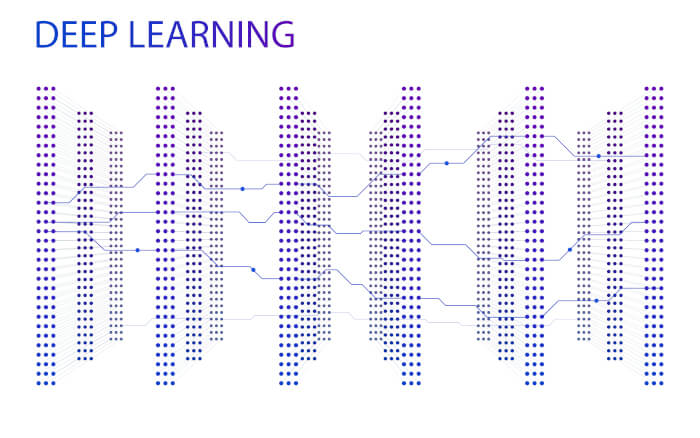Theano is an open source numerical Python library that allows you to define, optimize, and evaluate mathematical expressions involving multi-dimensional arrays efficiently.
Theano is a general mathematical tool, but it was developed with the goal of facilitating research in deep learning.
The software can use GPUs and perform efficient symbolic differentiation.
Theano is no longer being developed by MILA. The final release of Theano version 1.0.0 has been followed up by a couple of bug fix releases.
Features include:
- Tight integration with NumPy – Use numpy.ndarray in Theano-compiled functions. Transparent use of a GPU – Perform data-intensive computations much faster than on a CPU.
- Efficient symbolic differentiation – derivatives for functions with one or many inputs.
- Speed and stability optimizations – get the right answer for log(1+x) even when x is really tiny.
- Synamic C code generation – evaluate expressions faster.
- Theano can use g++ or nvcc to compile parts of your expression graph into CPU or GPU instructions.
- Combines aspects of a computer algebra system (CAS) with aspects of an optimizing compiler.
- Extensive unit-testing and self-verification – detect and diagnose many types of errors.
- Supports pygpu – a library to manipulate arrays on GPU.
- Use multiple GPUs simultaneously.
- Applies many kinds of graph optimizations.
- Cross-platform support – runs on Linux, Mac OS and Windows.
- Builds of Theano are available as Docker images.
Website: github.com/Theano/Theano
Support:
Developer: Theano Development Team
License: 3-clause BSD license
Theano has the following dependencies:
- Python 2.7 or Python 3.4-3.6.
- NumPy.
- SciPy.
- BLAS.
Optional requirements include: g++, nose, Sphinx, pygments, NVIDIA CUDA drivers, libgpuarray, pycuda, skcuda, and warp-ctc.
Theano is written in Python. Learn Python with our recommended free books and free tutorials.
Return to Deep Learning with Python
| Popular series | |
|---|---|
| The largest compilation of the best free and open source software in the universe. Each article is supplied with a legendary ratings chart helping you to make informed decisions. | |
| Hundreds of in-depth reviews offering our unbiased and expert opinion on software. We offer helpful and impartial information. | |
| The Big List of Active Linux Distros is a large compilation of actively developed Linux distributions. | |
| Replace proprietary software with open source alternatives: Google, Microsoft, Apple, Adobe, IBM, Autodesk, Oracle, Atlassian, Corel, Cisco, Intuit, SAS, Progress, Salesforce, and Citrix | |
| Awesome Free Linux Games Tools showcases a series of tools that making gaming on Linux a more pleasurable experience. This is a new series. | |
| Machine Learning explores practical applications of machine learning and deep learning from a Linux perspective. We've written reviews of more than 40 self-hosted apps. All are free and open source. | |
| New to Linux? Read our Linux for Starters series. We start right at the basics and teach you everything you need to know to get started with Linux. | |
| Alternatives to popular CLI tools showcases essential tools that are modern replacements for core Linux utilities. | |
| Essential Linux system tools focuses on small, indispensable utilities, useful for system administrators as well as regular users. | |
| Linux utilities to maximise your productivity. Small, indispensable tools, useful for anyone running a Linux machine. | |
| Surveys popular streaming services from a Linux perspective: Amazon Music Unlimited, Myuzi, Spotify, Deezer, Tidal. | |
| Saving Money with Linux looks at how you can reduce your energy bills running Linux. | |
| Home computers became commonplace in the 1980s. Emulate home computers including the Commodore 64, Amiga, Atari ST, ZX81, Amstrad CPC, and ZX Spectrum. | |
| Now and Then examines how promising open source software fared over the years. It can be a bumpy ride. | |
| Linux at Home looks at a range of home activities where Linux can play its part, making the most of our time at home, keeping active and engaged. | |
| Linux Candy reveals the lighter side of Linux. Have some fun and escape from the daily drudgery. | |
| Getting Started with Docker helps you master Docker, a set of platform as a service products that delivers software in packages called containers. | |
| Best Free Android Apps. We showcase free Android apps that are definitely worth downloading. There's a strict eligibility criteria for inclusion in this series. | |
| These best free books accelerate your learning of every programming language. Learn a new language today! | |
| These free tutorials offer the perfect tonic to our free programming books series. | |
| Linux Around The World showcases usergroups that are relevant to Linux enthusiasts. Great ways to meet up with fellow enthusiasts. | |
| Stars and Stripes is an occasional series looking at the impact of Linux in the USA. | |
